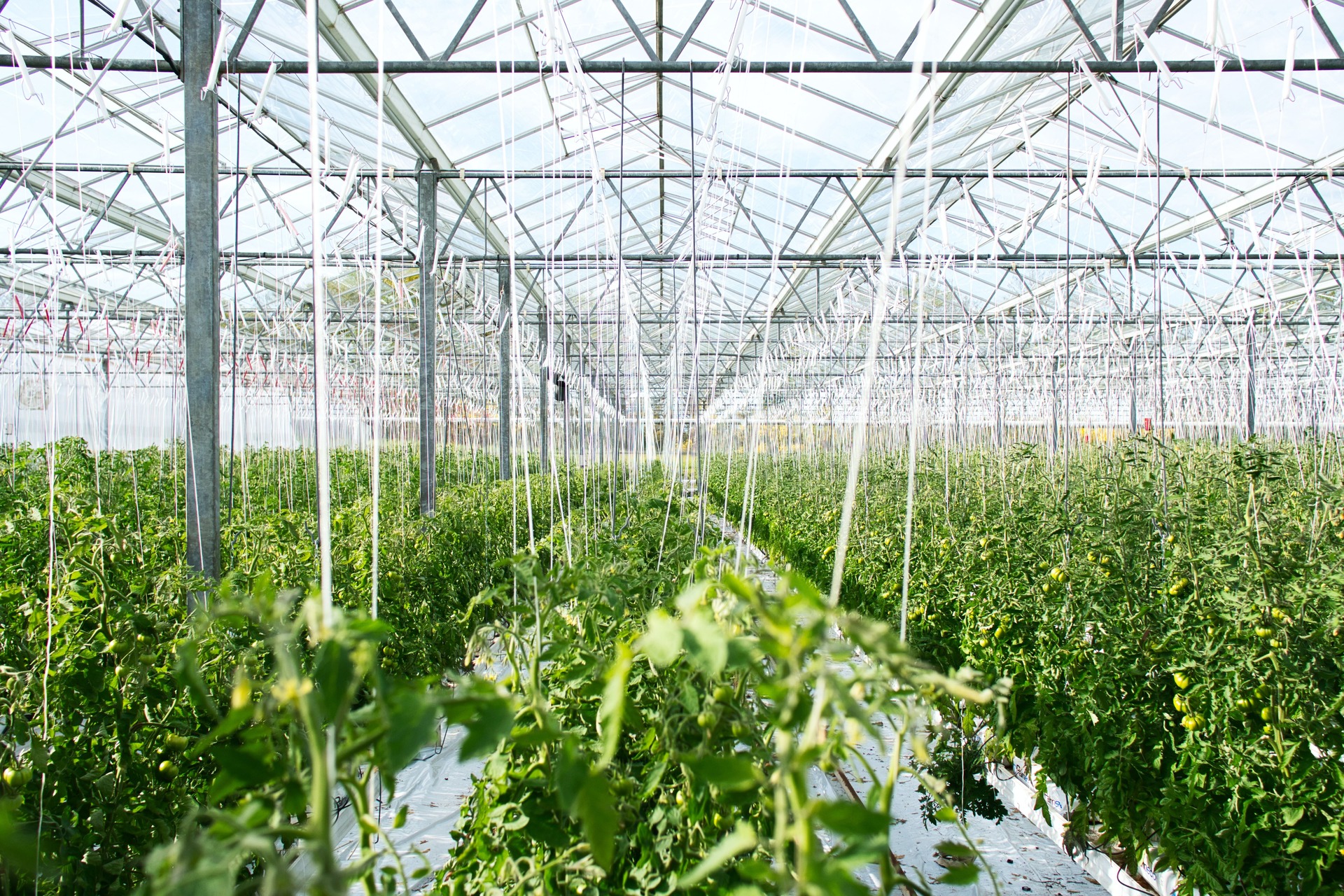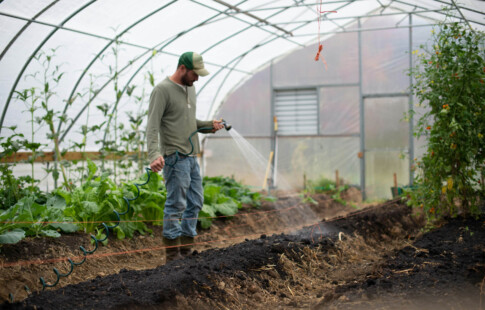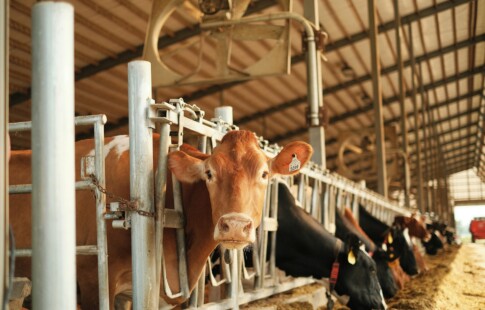
5 Positive Effects of Agriculture on the Environment
We are reader-supported. When you buy through links on our site, we may earn affiliate commission.
Agriculture is the cornerstone of our world. Farmers work hard so the rest of us can shop at fully-stocked grocery stores and lively farmers’ markets. All types of farming ensure that communities around the globe have access to enough food, such as crops, produce, meat and dairy products.
However, farming does more than benefit our society. There are also several eco-friendly advantages of growing crops. Learn more about the positive effects of agriculture on the environment.
Sustainable Agricultural Practices
Agriculture is a wide-ranging field. While you might picture fields of crops, agriculture also encompasses livestock, fishing, forestry and the equipment necessary to make it all happen.
Not all agriculture brings environmental benefits. In fact, some forms are significantly detrimental to the environment. Massive commercial ag practices that decimate natural habitats and cause soil erosion cause more harm than good in the long run.
Fortunately, sustainable farming practices can provide for a community’s needs while protecting the environment. For example, subsistence agriculture and organic farming use only what they need from the Earth and take steps to replenish it.
5 Positive Effects of Agriculture on the Environment
Farming takes many forms. There are several ways agriculture can help protect and support the local and global environment.
1. Improved Soil Health
Farming is all about the earth — literally. The dirt provides essential nutrients for crops, ensuring they grow strong, healthy and, eventually, delicious. However, farming can put serious wear and tear on the soil. After a while, crops can deplete the nutrients.
However, proper farming techniques can replenish the soil and even make it better than before. Soil nutrient testing is a beneficial practice for both crop production and environmental health. Farmers can test the earth to determine the makeup of their soil and which nutrients are plentiful or missing. Then, they can select the right crops and fertilizer.
Soil testing and care go a long way toward sustainability. Healthier farmland translates to a healthier ecosystem. Using the right type and amount of fertilizers means less runoff polluting the local environment.
Other soil maintenance techniques, like conservation tillage, also protect the earth. Conservation tillage relies on as little soil manipulation as possible to grow crops, reducing soil erosion.
2. Enhanced Energy Conservation
Like any industry, agriculture requires energy consumption. Crops need water and irrigation systems, equipment like tractors, pesticides, fertilizers and other energy-consuming processes. Fortunately, farmers and other agricultural workers can use energy efficiently to benefit the planet.
Energy awareness and keeping equipment in working condition minimizes energy use. Broken equipment is less efficient, requiring more time, resources and energy consumption to plow a field or harvest crops. Regularly change filters, replace worn parts and check for issues to conserve as much energy as possible
Proper storage for crops or other products can reduce energy costs and usage, too. Adequate insulation means lower energy consumption — and energy bills — as you store grain, produce or livestock.
Farmers can make use of alternative fuels instead of relying on fossil fuels. For example, installing solar panels, harnessing wind power or using biodiesels like vegetable oil fuel can reduce a farm’s carbon footprint.
3. Biofuel Production
One of the most promising alternative fuels is biofuel, which is also one of the many positive effects of agriculture on the environment. Biomass is any and all types of organic matter used as fuel, such as crops and agricultural residue, plant waste, animal manure, sewage and other organic garbage.
Biofuel is made from biomass and shows promise as a cleaner and renewable resource. This sustainable alternative fuel offers several benefits. Using biofuel instead of fossil fuels could result in fewer greenhouse gas emissions, reducing agriculture’s significant carbon footprint.
Other advantages include improved air quality and fewer biohazard risks. Many biofuels are biodegradable and non-toxic, which means that spills will break down into the environment without harm — rather than causing massive eco disasters.
4. Reduced Natural Resource Depletion
Agriculture in all its forms can help provide the resources necessary to power our society so we don’t need to take them from natural environments. For example, forestry is an often overlooked part of agriculture. It’s all about properly managing and conserving trees and forests, which includes responsibly using trees for human consumption.
Agricultural workers in the forestry sector work to combat irresponsible practices, such as deforestation. Proper management of forests ensures a balance between the resources we take and what we give back to the planet.
The same logic applies to other aspects of agriculture. Properly managed fisheries ensure people can get the fish they need without depleting the natural population in the wild. Biofuels have the potential to replace non-renewable fossil fuels.
5. Increased Environmental Stewardship
Farmers are often the people living closest to the land. Living and working alongside nature inspires a sense of responsibility. That’s why the agricultural sector is frequently invested in environmental stewardship programs.
Environmental stewardship can take many forms. Cleaning up greenspaces, restoring wetlands, picking up litter in public areas, soil restoration and forest conservation are all ways people can get involved and make a difference. Farmers and other agriculturalists take part in these programs and institute their own.
Whether you have a farm with hundreds of acres or you help take care of a community garden, an involvement in environmental stewardship projects is a natural effect of living alongside the land.
Explore the Environmental Advantages of Agriculture
Farming and other types of agriculture shape our world in every sense. Agriculture is inseparable from our environment. Rather than existing as opposing forces, farmers and environmentalists can work together to harness the positive effects of agriculture on the environment for a healthier, well-fed world.
Share on
Like what you read? Join other Environment.co readers!
Get the latest updates on our planet by subscribing to the Environment.co newsletter!
About the author
Jane Marsh
Starting from an early age, Jane Marsh loved all animals and became a budding environmentalist. Now, Jane works as the Editor-in-Chief of Environment.co where she covers topics related to climate policy, renewable energy, the food industry, and more.





